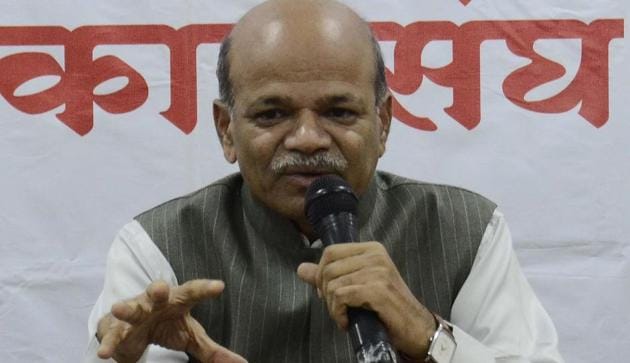Yoga has its traces in Indus Valley Civilisation: Archaeologist Vasant Shinde
Vasant Shinde is the co-author of a landmark study which establishes South Asian ancestry in the Indus Valley Civilisation.
Pune: Yoga, the ancient Indian system of physical and mental well-being, has its traces in the Indus Valley Civilisation, eminent archaeologist Vasant Shinde said here on Saturday.

Vice-chancellor of Deccan College Post Graduate and Research Institute, Shinde, said, “A lot of our cultural and traditional patterns are inspired from the Indus Valley Civilisation. In fact, yoga which is a gift to the entire world from India also has its traces in the Indus Valley Civilisation. Our study exhibits factual evidence for such theories.”
He was speaking at an interaction organised by the Pune Union of Working Journalists (PUWJ).
Shinde is the co-author of a landmark study which establishes South Asian ancestry in the Indus Valley Civilisation. Conducted in association with Harvard Medical School and other research organisations, the study titled, “An Ancient Harappan Genome Lacks Ancestry from Steppe Pastoralists or Iranian Farmers” was published in the international journal Cell.
“Our ancestry belongs to the Harappan civilisation,” said Shinde, who headed the Rakhigarhi project which throws light on the Indus Valley civilisation by a study of DNA from skeletal remains excavated from the Harappan cemetery at Rakhigarhi.
He explained that the research team sequenced the first genome of an individual from Harappa and then combined it with the archaeological data. “Our findings states that these hunters and gatherers of south Asia had an independent origin and they adapted a settled way of living in this part of the world.
“It is also our findings that the community later developed agriculture communities and then formed the Harappan civilisation. These people also traded with Egypt, the Persian gulf and almost all across the entire south Asia, the result of which is a mixed genetic history” said Shinde.



